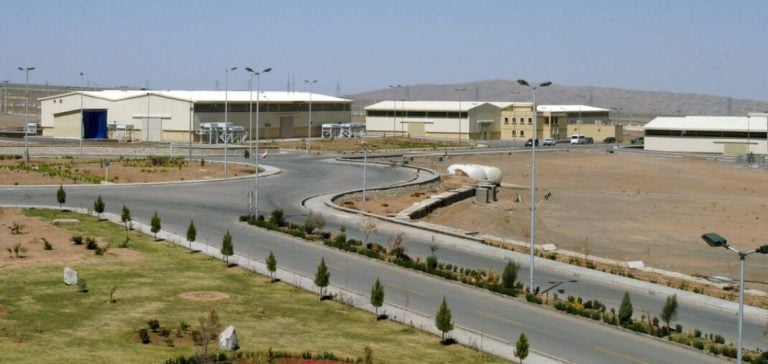Iran, a key player in the global energy landscape, finds itself at the heart of an ongoing controversy concerning its nuclear program.
The head of Iran’s Atomic Energy Organization, Mohammad Eslami, recently asserted that there are no secret objectives behind his country’s nuclear activities.
In an interview with AFP, he stressed that uranium enrichment, which has reached worrying levels, is mainly for research purposes and the production of isotopes for industrial applications.
This statement comes against a backdrop of growing tensions between Iran and Western powers, exacerbated by economic sanctions and concerns about the transparency of Iran’s nuclear program.
The challenges of uranium enrichment
Iran has accumulated reserves of uranium enriched to 60%, a level close to the 90% required to manufacture a nuclear weapon.
This escalation has raised concerns within the International Atomic Energy Agency (IAEA), which has denounced Teheran’s lack of cooperation.
Indeed, since 2021, Iran has considerably reduced inspections of its nuclear sites, disconnecting surveillance cameras and withdrawing expert accreditation.
This situation led to the adoption of a critical resolution by the IAEA Board of Governors, albeit a symbolic one at this stage.
Despite these tensions, Eslami insists that Iran operates with complete transparency.
He says:
“Our activity is completely transparent. It’s not as if we’re producing a substance with secret objectives.”
This assertion is intended to allay international fears, while at the same time highlighting the presence of over 120 IAEA-approved inspectors, which he says testifies to an unprecedented level of control.
The future of the JCPOA and international relations
The issue of the Joint Comprehensive Plan of Action (JCPOA), the 2015 nuclear deal, remains central to the discussions.
Eslami expressed the hope of relaunching negotiations to revitalize this agreement, which aimed to limit Iran’s nuclear activities in exchange for the lifting of sanctions.
However, this agreement has been severely compromised by the withdrawal of the United States in 2018 and the failure of negotiations in Vienna in 2022.
Eslami asserts that “the JCPOA is not dead” and that Iran is ready to meet its commitments as soon as the other parties resume their obligations.
However, the E3 countries (France, UK, Germany) and the USA are expressing doubts about Tehran’s willingness to return to the negotiating table.
They point to the absence of concrete signs of cooperation from Iran, warning that their patience has limits.
Against this backdrop, experts believe that a resumption of dialogue seems unlikely before the US presidential elections, thus heightening tensions between the two parties.
Perspectives on Iranian energy policy
The current situation highlights the challenges facing Iran in its quest for sustainable energy development.
Economic sanctions have had a significant impact on Iran’s energy sector, limiting access to the technologies and foreign investment needed to modernize its infrastructure.
At the same time, Iran is seeking to diversify its energy sources and strengthen its position on the global market, while navigating a complex geopolitical environment.
The implications of this dynamic are manifold.
On the one hand, Iran could intensify its efforts to develop partnerships with non-Western countries, particularly in Asia, in order to circumvent sanctions.
On the other hand, the pursuit of its nuclear program could exacerbate tensions with Western countries, making future cooperation even more difficult.
In this context, transparency and a willingness to engage in dialogue will be essential to allay international fears and foster a climate conducive to cooperation in the energy sector.
Recent developments underline the importance of a balanced and pragmatic approach to international relations, taking into account the strategic interests of each party.
Iran’s ability to navigate these challenges will determine not only the future of its nuclear program, but also its role in the global energy landscape.






















